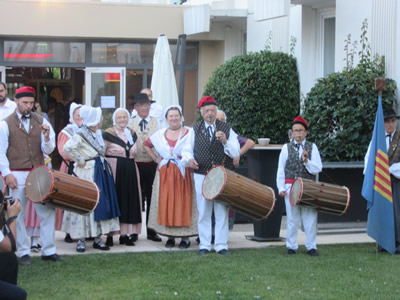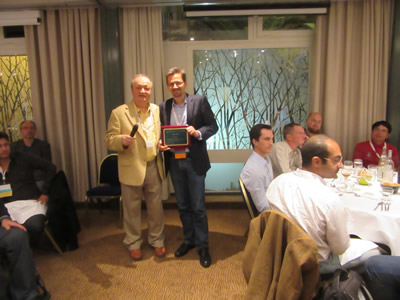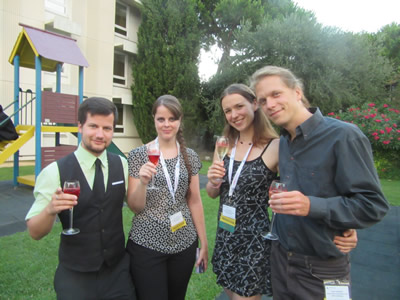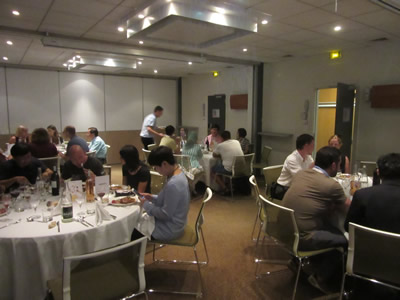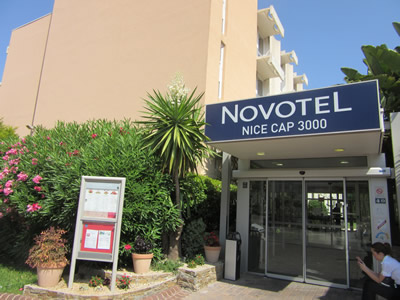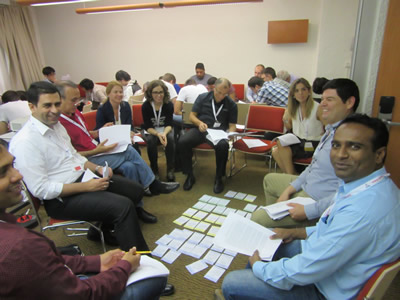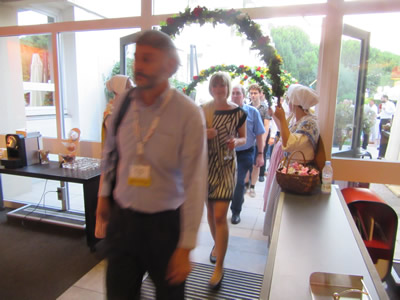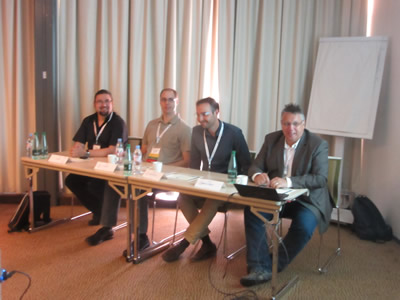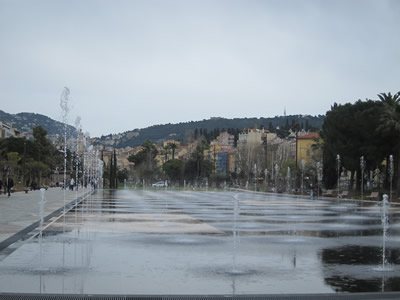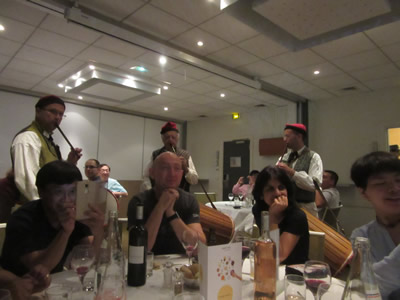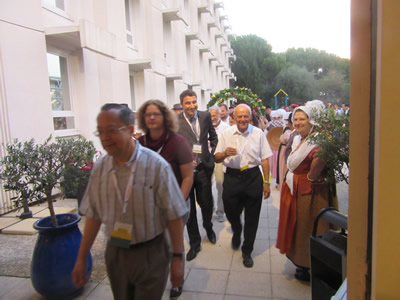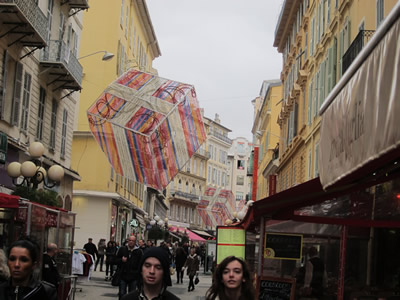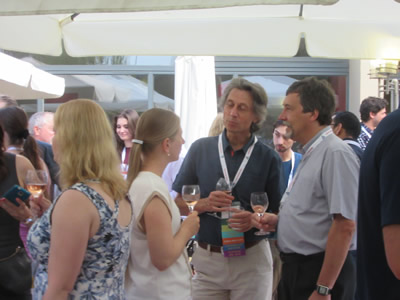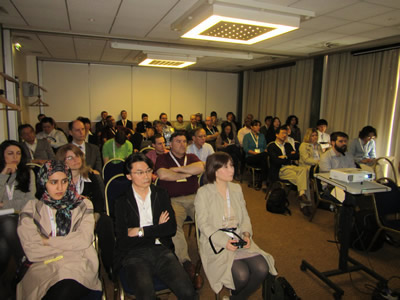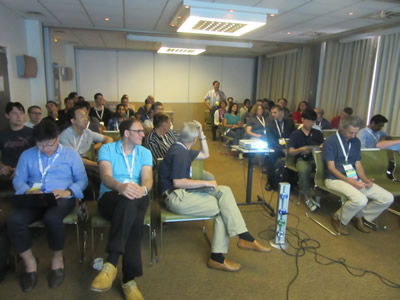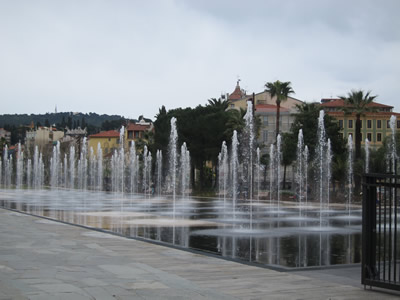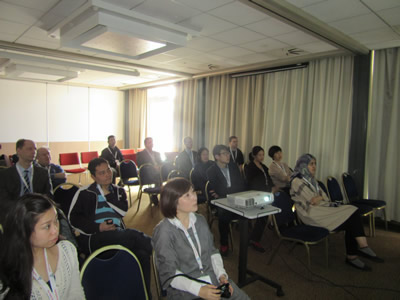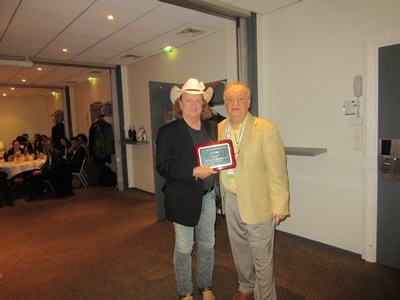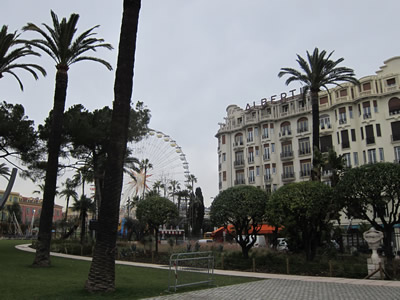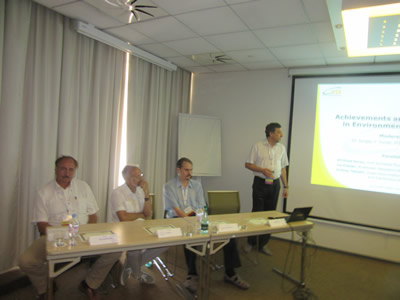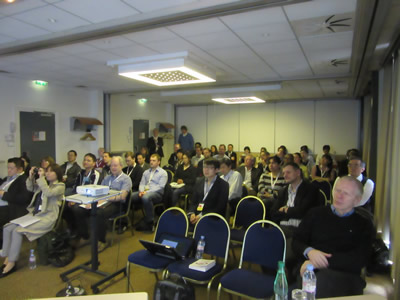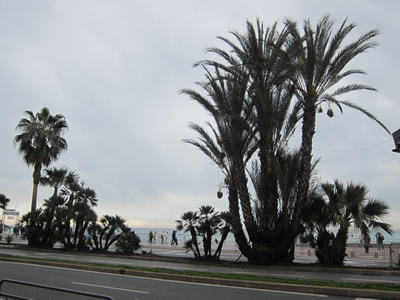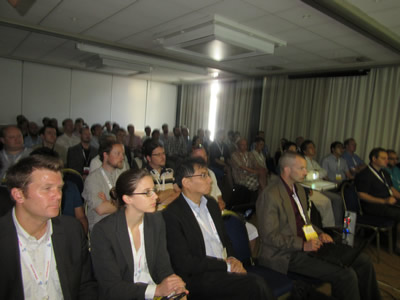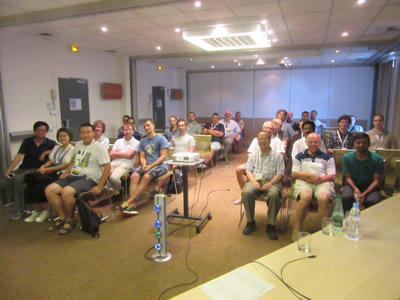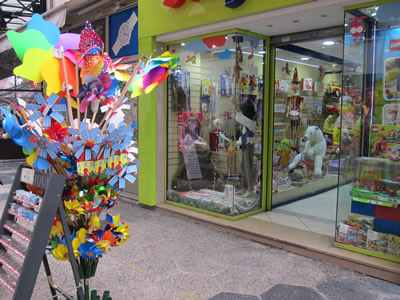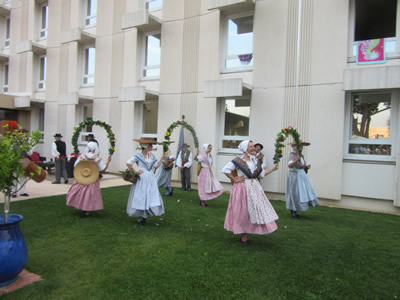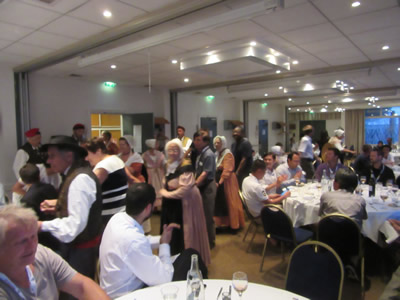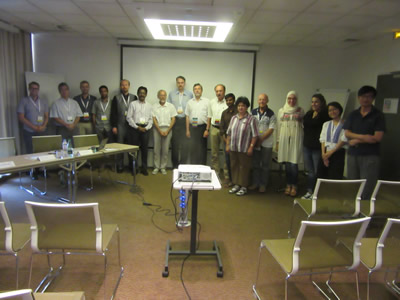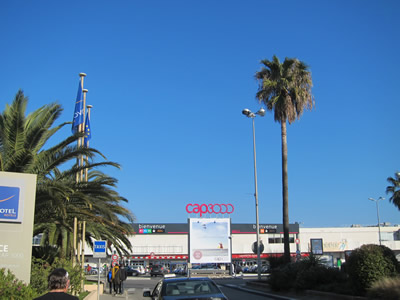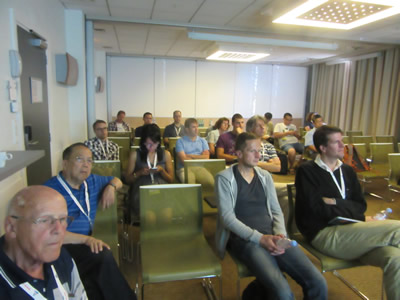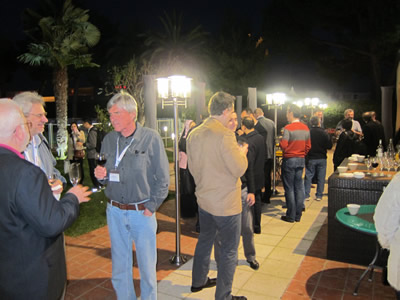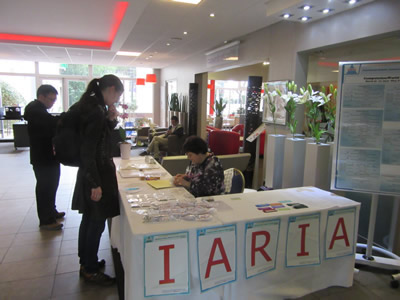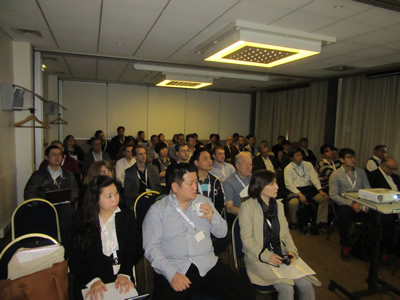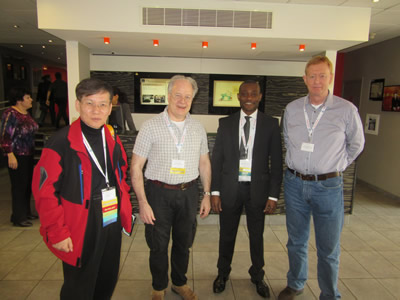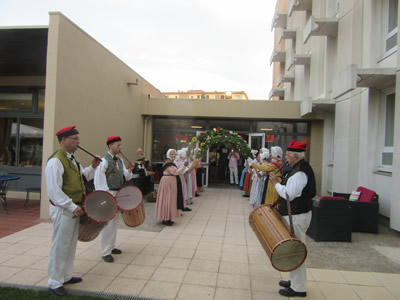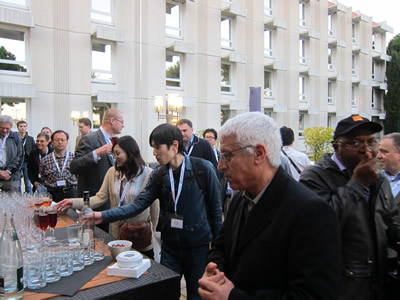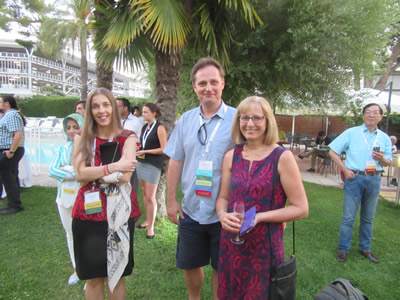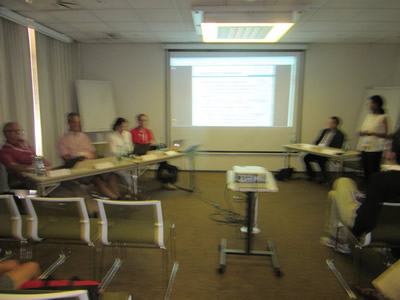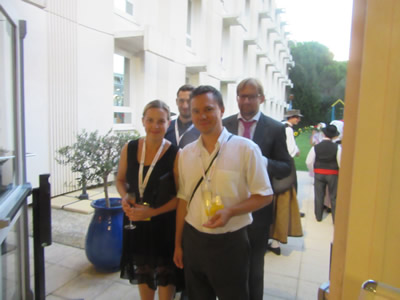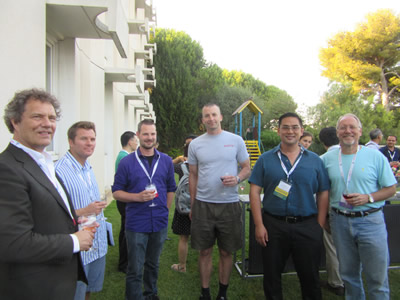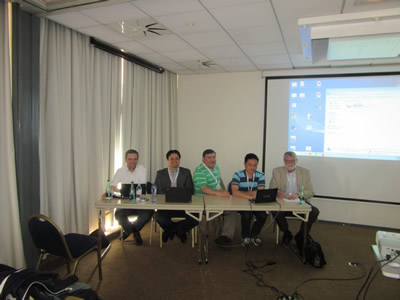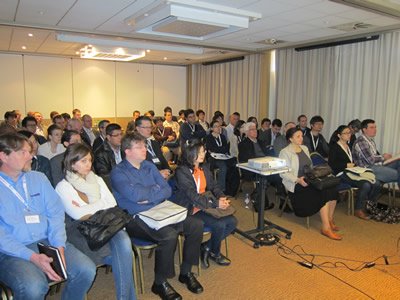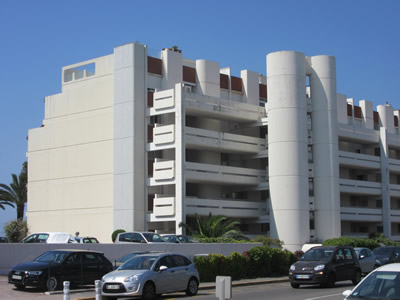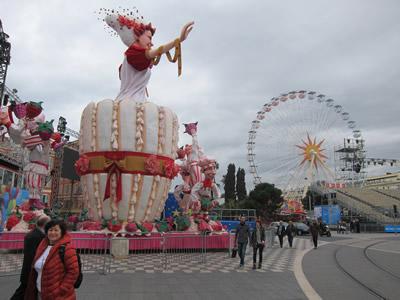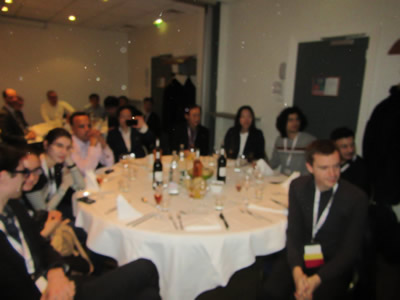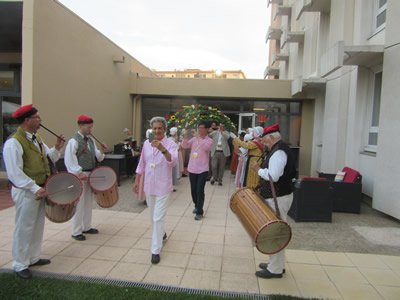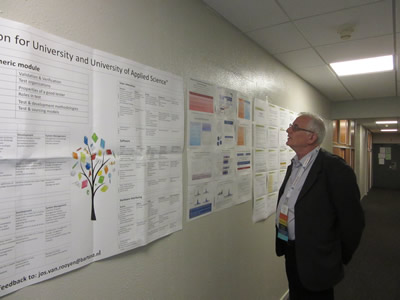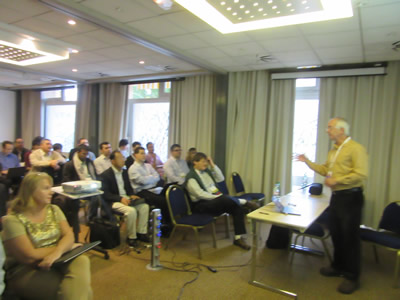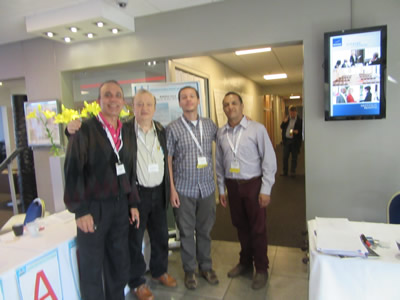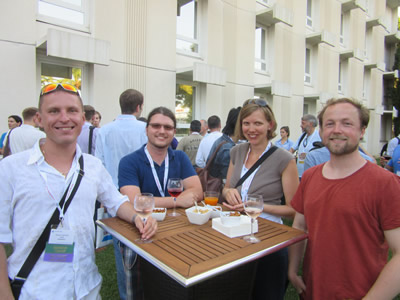Published by IARIA Press (operated by Xpert Publishing Services) | |
Archived in the Open Access IARIA ThinkMind Digital Library | |
Prints available at Curran Associates, Inc. | |
Authors of selected papers will be invited to submit extended versions to a IARIA Journal | |
FAQ
Submission deadline extended to:
March 31, 2026
Nice, France
Jul 05 - Jul 09, 2026
- IARIA Congress 2026, The 2026 IARIA Annual Congress on Frontiers in Science, Technology, Services, and Applications
FAQ
1. Program options
Enjoy permanent free access to the .pdf presentations (on www.iaria.org) and/or pre-recorded videos along with their corresponding papers' content (at www.thinkmind.org).
The logistics organize on-site meetings based on the confirmation received from the potential attendees.
The event is fully hybrid: on-site (available), remote .pdf slide presentations (mandatory), remote prerecorded videos (optional, suitable), and 'live' (optional)(suitable for: Keynotes, Tutorials, Special Tracks, Panels)
Note: 'live' might be challenging for attendants due to time zone constraints, speakers unforeseen availability (prerecorded videos is a back-up), and network communications reliability.
For LIVE presentations, access credentials are sent via emails to the program committee members, authors and all registered attendees.
EVERYBODY will have access to all LIVE presentations (the access credentials are sent via email, in a close environment, i.e., TPC, Authors, Guests)
2. Standard presentation materials
These materials are required regardless of the option for participation.
For preparing the mandatory/optional items please see https://www.iaria.org/presentationformat.html
(mandatory) .pdf presentation slides (see: link for a sample)
and
(optional, suitable) a prerecorded video (see link above)
Please see a program already done: https://www.iaria.org/conferences2020/ProgramCOGNITIVE20.html
Each contributor will be timely invited to provide the above materials.
Please email them with the email subject: slides - event acronym/#paper ID (e.g., "slides -ACHI/#28040)
3. On-site participation
Event contributors and registered attendees are asked via emails to express the option for attendance.
The logistics organize on-site meetings based on the confirmation received from the potential attendees.
A special dedicated program will be built for those attending on-site; the hotels are complying to the WHO and local governmental rules.
On-site services are guaranteed; those on-site might record their on-site presentations that will be posted on the public program;
See an example at https://www.iaria.org/conferences2020/ProgramCYBER20.html
The Cyber Microbiome and the Cyber Meta-reality
Joshua Sipper
- presentation slides / video / full article in Thinkmind Digital Library / recorded live presentation On-site photos will be posted.
4. LIVE, Tutorial speaker, Keynote speaker, Panel Chairs, Special tracks Chairs
The Speakers and Chairs decide and set a LIVE using the tools they already use for classes. For this, the speakers/chairs set and email the following to steve@iaria.org.
Date: <any>
Time: <any> (very early (Europe time) covers Asia/Pacific, afternoon (Europe time) covers South America and North America)
Tool/URL: <link, tool, procedure> (avoid special applications, new installation, special computer setting of the guests)
Credentials: (password, code, ... )
example: see on the same site: https://www.iaria.org/conferences2020/ProgramCOGNITIVE20.html
Cybersecurity Education
LIVE Zoom Presentation
Date: Monday Oct 26, 2020; Time 04:00 PM (Helsinki Time)
https://arcada.zoom.us/j/68010579316?pwd=djhMRnVqK0R5akZOaUNDdVFtRGFSUT09
Meeting ID: 680 1057 9316
> Credentials: will be sent via email to everyone
The credentials are not publicly posted, but they will be sent to all the TPC and participants by the logistics; the Chair/Speaker might email them to their trustee.
5. LIVE, author, regular paper
Event contributors and registered attendees are invited via emails to express the option for attendance.
For authors from the regular track, there is an option to present LIVE and here are the requirements:
If an author intends to present 'live' a paper, both .pdf presentation slides and the prerecorded video (unlisted YouTube) are mandatory.
The prerecorded video must be recorded by the same presenter who delivers 'live'; the prerecorded video will be posted on the program site and is kept as a back-up, if intermittent communications unexpectedly occur during the scheduled slot.
All 'live' presentations will be scheduled on a dedicated day, at a convenient European time slot [3:00pm-6:00pm], which will cover at least one more timezone (North America and South America), and European early morning time [7:00am-10:00am], which will also cover Asia/Pacific areas.
The needed information (Day, Time, Tool, Credentials) will be sent by the logistics to the speakers and potential attendees (authors, TPC members).
6. Materials to be prepared by the Chairs of the Special Tracks
The Chairs should prepare: an Introduction and an Editorial
Both the Introductions and the Editorial will be publicly posted (you can refer to them, post-event).
a) On the Introduction; 6-8 slides with the salients points;
1st slide: Title/ your affiliation, email addresses, logos (your university's, IARIA's: https://www.iaria.org/images/_iaria/logo.png)
2nd slide: Photos (optional) and very short CVs of the Chair
3rd... 7rh-8th- : Content
The last one: Projection on future challenges
b) On the Editorial
> Make it as a stand alone short-paper (Abstract, Introduction on the topic, state of the art, CORE, challenges)
> In the CORE section discuss each of the contributing papers (0.5-1 column each)
> Have a Conclusion
> For References, list track papers (no pp. ) + others you used in the Introduction/State of the art.
> Use the same template used for the contribution
Please see two samples of the past special tracks, only as a guidance only.
https://www.iaria.org/conferences2017/filesADAPTIVE17/MAAPL_ADAPTIVE17.pdf
https://www.iaria.org/conferences2017/filesPATTERNS17/PATTOLOGY_PATTERNS17.pdf
For example of posting:
See: https://www.iaria.org/conferences2020/ProgramICAS20.html
ICAS 4 / VLRA: Vision and Learning for Robotic Applications
Chair and Coordinator: Dr. Timothy Patten, Automation and Control Institute, TU Wien, Austria
Co-Chair: Dr. Geraldo Silveira, Division of Robotics and Computer Vision, CTI, Brazil
Introduction
Timothy Patten, Geraldo Silveira
- presentation slides / editorial
7. Indexing (also by authors)
All IARIA conference proceedings and Journal issues are Open Access, freely accessible via the ThinkMind Digital Library [https://www.thinkmind.org/]
Authors have the right to repost the content anywhere else.
Google Scholar is the preferred indexing approach (performed via the Mirror at Universitat Politècnica de València: http://personales.upv.es/thinkmind/)
However, it seems that Google Scholar is more prompt with articles submitted by individual authors. To have your work indexed by Google Scholar, you can host the articles on your academic/institution server, and then follow these instructions for the submission process. Note that quite a number of our publications have been mirrored in university repositories, and those repositories have been quite readily indexed by Google Scholar. To our surprise, a very large number of universities have these repositories to host articles written by the professors at their institution. An example of this is CentAUR: Central Archive at the University of Reading.
Another venue to have the articles in Google Scholar is to upload them to your ResearchGate profile. From there, they can be submitted to Google Scholar for indexing.
For specialized conferences, specialized indexes might be considered, e.g.,
> HCIbib index [http://hcibib.org/hci-sites/conferences] for ACHI, SOTICS, HUSO, or CENTRIC series,
or
> MedLine Index [https://www.nlm.nih.gov/bsd/journals/online.html] for eTELEMED, GLOBAL HEALTH, HEALTHINFO, or BRAININFO series.
For ALL other indexes (there are more than 60), anyone can submit a request for indexing to the appropriate indexing entity, as the conference and journals materials are fully displayed with Open Access (free-access, free re-posting) in the ThinkMind digital library.
Authors have full rights to post and re-post, providing the original source (e.g., URL from ThinkMind Digital Library) is provided.
8. DOI vs (Open Access) URL
URL is a unique address where a document (details on identification and content) will be found.
DOI is an object identifier on a document; in the end, DOI leads to the URL to find the document in question.
Therefore, URL is the basis for a document; as ThinkMind is an open-access, one can go directly to the URL of each paper; that URL is unique.
For digital documents, there is no need for DOI (as just an intermediary between a document title and its URL)
Note: DOI is more useful for only-printed documents that do not have an individual URL per document.
Actually, DOI came from the printed-only journals, before the digital era, to identify a paper document.
As a similitude: asking DOI for a digital document (that has its own URL) is asking somebody to have a digital signature, but in 'red', not in 'blue'.
Briefly, for digital directly accessible documents (as any IARIA materials are) DOI is useless.
Ultimately, DOI can be substituted by URL (as Open Access).
9. Withdrawal and Plagiarism policy
IARIA encourages young researches, professors, and engineers to submit new idea papers, practical results, lessons learnt, as well as any substantial contributions to the scientific community.
We strongly advise that the papers be carefully edited to improve the legibility of the text. The length of the originally submitted papers must not vary too much from the camera ready version.
While withdrawing a paper may happen in a limited number of cases, we support the fairness of the submission. Please take note of the following with respect to paper submissions:
(i) A submission SHOULD NOT be intended to get reviews from the TPC for the sole purpose of improving on the quality of the paper. A submission implies that the author intends to ultimately register the paper upon a favorable response from the organizers. IARIA doesn’t encourage withdrawals after the paper is accepted.
(ii) Once submitted, a contribution should not be resubmitted to another event before a confirmation of acceptance or rejection. As e-mail may fail, it is the responsibility of the authors to ensure there is no double submission based on an assumption that the paper was rejected, but the e-mail failed to be received. IARIA doesn’t support double submissions. Once a paper is submitted elsewhere, and no decision was clearly received, don’t submit the same paper to IARIA conferences.
(iii) Small amounts of already published material are allowed in any submission, under the condition that the source be clearly identified. If the reference is missing [quotes and citation], and the paper is published, the publishing authors must write a letter of apology to the original author. If the paper is not published, the review process must enforce the authors to make this reference; publication process continues only after the text was properly corrected.
(iv) IARIA fully follows ACM and IEEE plagiarism polices and cooperates with ACM and IEEE to enforce them.
If plagiarism is discovered during the review process, the paper is automatically rejected; the author must explain the cause and write a letter of apology to the original author.
If plagiarism is discovered after the paper is published, the following rules apply.
For ACM Plagiarism policy, see: “Plagiarism on the rise”, Ronald F. Boisvert, Mary Jane Irwin, Communications of the ACM, June 2006, Volume 49, Number 6, pp.23-24.
As per the authors of the article mentioned above “the verbatim copying, near-verbatim copying, or purposely paraphrasing portions of another author’s’ paper” is plagiarism.
IARIA endorses and applies the levels of offense, investigation and penalties set by the ACM Code of Ethics.
Litigations must be properly followed; the offending authors must apologize to the offended authors. IARIA will inform the authors’ organization about the plagiarism facts. If subsequent offenses occur, the author is banned from publishing in IARIA conferences. This rule is 100% enforced.
10. Open Access Sponsorship
There are many potential sources of financial support for students doing research and/or graduate studies, related to Open Access conferences and Journals.
Please consider below some directions for getting access to financial resources nonsupport publishing your research.
a. Institutional Research Funding: Your managers, labs Leaders, Projects Managers, and/or Research supervisors from you own educational institution may have internal funding opportunities, grants, or research support programs specifically designed for students. Check with your department, research office, or university's financial department for such resources.
b. Research Grants and Fellowships: Many organizations, including government agencies, private foundations, and academic institutions, offer research grants and fellowships to support students' research projects. Examples include the National Science Foundation (NSF), the Fulbright Program, European Commission, most of the European Projects (e.g., Horizon 2020, etc.), and various research councils (see: https://commission.europa.eu/research-and-innovation_en)
c. Scholarships and Awards based on Excellence: Numerous scholarships and awards are available to support students at different levels of study. These can be discipline-specific, merit-based, or need-based. Check with your institution's financial aid office, or country/region/government Research Entities.
d. Additionally, search scholarship databases such as Fastweb, Scholarships.com, Cappex, Chegg Scholarships, or the Open Education Database.
e. Different platform for sponsorship search: e.g., Moolahspot, Sallie Mae's Scholarship Search, etc.
When using these platforms, it's important for students to:
- Regularly update their profiles to get the most relevant scholarship matches.
- Be wary of potential scholarship scams; legitimate scholarships shouldn’t ask for payment.
- Start their scholarship search early and track deadlines.
- Apply to as many scholarships as they qualify for to increase their chances of winning.
f. International level: e.g., International Scholarships, IEFA (International Financial Aid and College Scholarship Search), Graduate School Scholarship Search
g. Open Access Funds: Some universities and research institutions have established Open Access Funds to support researchers and students in covering publication fees associated with publishing in Open Access journals. These funds help ensure that research findings are freely available to the public. Check with your institution's library or research office to inquire about available funds.
h. Charitable Foundations: There are quite a few charitable foundations that support education and research initiatives. Examples include the Bill and Melinda Gates Foundation, the Ford Foundation, and the Open Society Foundations. These foundations often have specific areas of focus; check these profiles with the nature and domains of your research interests.
i. Crowdfunding Platforms: You might consider utilizing crowdfunding platforms like Kickstarter, Indiegogo, Patreon, Crowfunder, Pozible, FundScience, Pedritish, SciFund, or GoFundMe to raise funds for specific research projects. These platforms allow you to create campaigns and reach out to a broader audience for financial support.
When opting for crowdfunding, research students should:
- Clearly communicate the significance and objectives of their research.
- Offer engaging rewards or updates to donors.
- Promote their campaign through personal networks, social media, and relevant academic channels.
- Be transparent about how funds will be used.
Copyright (c) 2006-2026, IARIA

